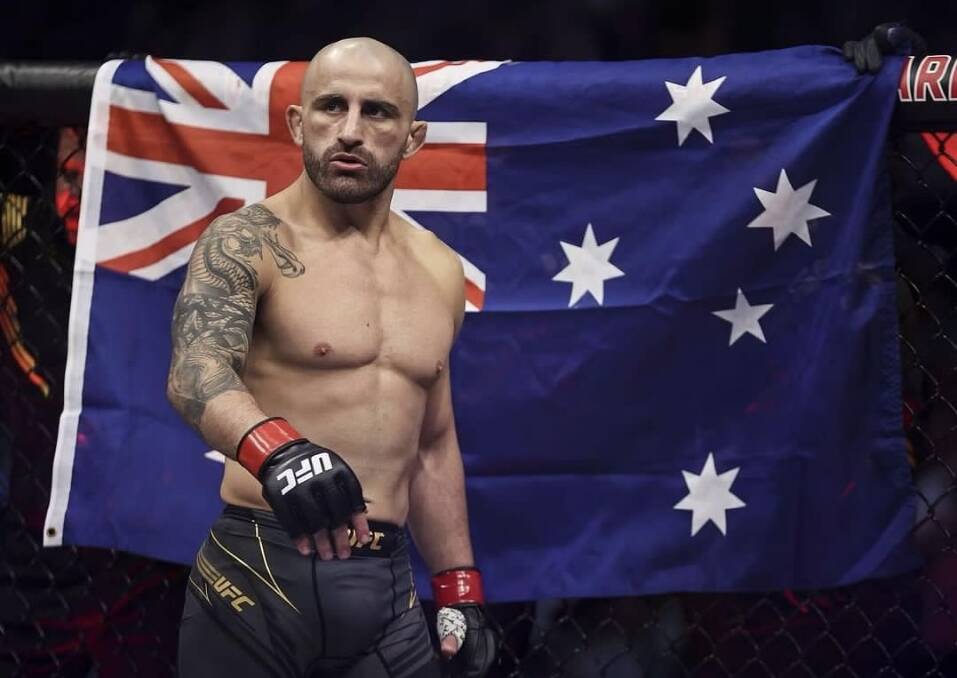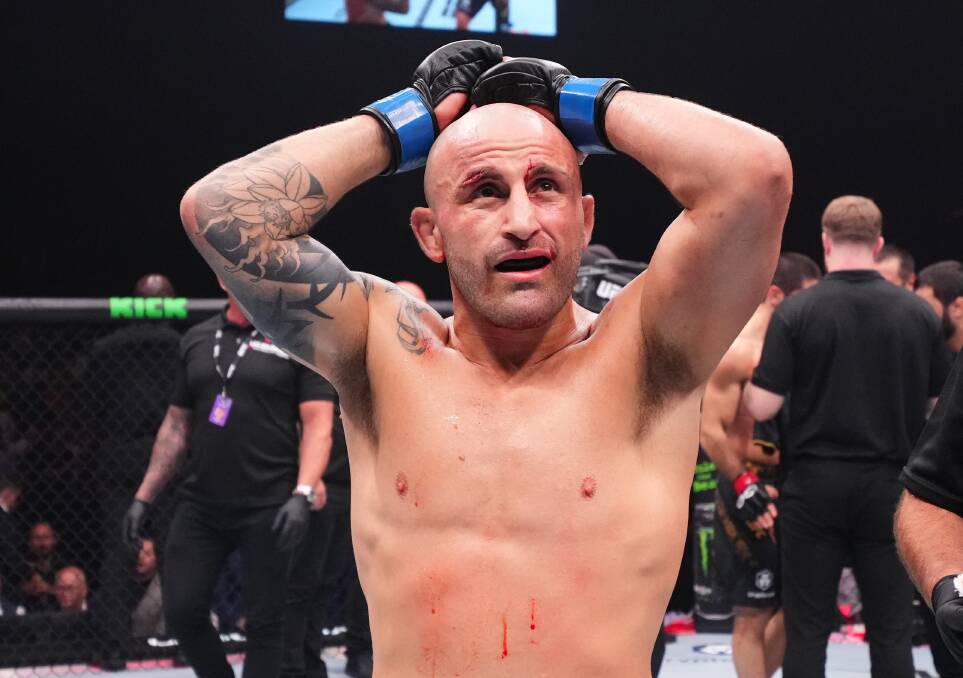It's one of the truly enthralling things about combat sports, that an outcome that was always a distinct possibility can be so shocking.
Subscribe now for unlimited access.
or signup to continue reading
That was the case when Alex Volkanovski was felled by a head kick from lightweight champion Islam Makhachev three minutes into the first round of their title bout on Sunday morning.
All week Volkanovski had been rightly lauded for his decision to take the bout on 11 days' notice.
The outcome was a crushing disappointment for fans, both rusted-on and casual, but Volkanovski's emotional response in the aftermath should remind us all that - when it's all said and done - it's only the fighters themselves who truly foot the consequences.

He suggested himself in the aftermath that it wasn't a wise decision, and the result inevitably saw people question whether he should have. Public opinion is as transient as it is fickle. It took just literal seconds to shift on Sunday.
It's not somewhere most of us would readily place our destiny, but it's the lot of the professional athlete. The appeal of sport lies in the way it throws a firm scaffold around the otherwise ambiguous concepts of winning and losing, terms in which so much of life is couched.
Away from sporting arenas 'losers' have triumphant wins we'll never know of, and 'winners' to the naked eye can suffer crippling losses only they are truly aware of. For pro sportspeople, that curtain is pulled back, and none are more exposed than they are in a sporting cage or ring.
No fighter ever has 'nothing to lose' like some suggested was the case for Volkanovski. The emotional figure he cut in the aftermath spoke to that. It was raw and real and, clutching as it sounds, there's a victory in that.
For all his belts and accomplishments, 'Volk' has persistently stated that the achievement of which he is most proud is having remained his genuine self all the way through. It sounds cliched, but it's no simple thing.
It's heightened when your sporting vocation plays out not in, but in spite of, an accompanying circus to which only the WWE can hold a candle.
That's the UFC, a promotion that sees president Dana White parade Donald Trump through arenas like some sort of conquering hero and has athletes compete for a BMF (bad mother f---er) belt that was once ferried to the cage by The Rock.
Unlike the WWE, however, the outcomes in the UFC are not predetermined. They can be brutally unexpected too, Makhachev's head kick on Sunday morning was a case in point.
That Volkanovski could take the fight against an opponent of Makhachev's calibre in such circumstances, and still have at least half the MMA world fully believing he could win, speaks to just how highly he's thought of as a practitioner and person.
The reality is, the masses came much later to that party than they should have. Volkanovski's career has been driven by an unwavering self-belief, but recency bias makes it easy to forget how long and grafting Volkanovski's battle for respect has been (there was a time most of MMA fandom thought Brian Ortega was a bridge too far).

He's now overwhelmingly considered the best 145-pounder ever. Fans of the second-best, Hawaiian Max Holloway, spent the best part of three years labelling him a fake champion after a close second bout between the pair.
Even when he thoroughly put the Holloway rivalry to bed in their third bout 18 months ago, most just moved on with a shrug, just as most will following Sunday's loss. Fighters themselves can't just get on and off the roller coaster like the rest of us.
For fighters in the cage or the ring, even great victories can be like escaping a car crash unharmed. The experience, and all that was at stake, doesn't just disappear from a fighter's mind.
In that mire, it shouldn't be difficult to understand why Volkanovski, and some of his notable contemporaries, have expressed the almost pathological need to shift focus to the next thing; and then the next. Standing still will just "do your head in" as Volk put it.
To stop and think too long about the pure insanity of what they do is something fighters can't afford to do, but it's something the rest of us should.
The anyone, anywhere any time mentality is not something expected of any other professional sportsperson, yet it is expected - almost demanded - of the combat sports athlete; and at the risk of the ultimate physical harm.
It's not something we who consume it from pubs or living rooms should take for granted, nor forget when the circus moves on.
Our news app has had a makeover, making it faster and giving you access to even more great content.
Download The Illawarra Mercury news app in the Apple Store and Google Play


